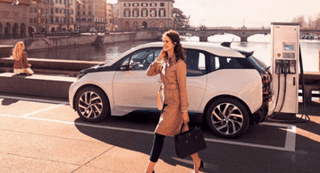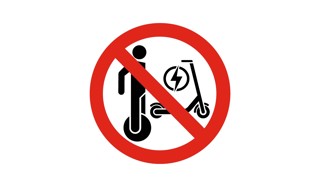A Government transport minister is calling for the country to move away from car ownership with shared mobility instead becoming the norm.
Outlining her support for a system that’s “fit for the future”, transport minister Trudy Harrison said the country needs to move away from “20th century thinking centred around private vehicle ownership” and introduce “greater flexibility, with personal choice and low carbon shared transport”.
Shared transport includes bike share schemes, car clubs, shared rides, e-scooters, and digital demand responsive transport.
Harrison told delegates at the Collaborative Mobility UK (CoMoUK) annual shared transport conference, it was “staggering” that nearly two-thirds of car trips are taken by lone drivers.
She said that the UK is at a “tipping point” where shared mobility will soon be a “realistic option for many of us to get around, where mobility hubs become a familiar part of our street architecture, and where all these options will be available to book and pay for at the touch of a smartphone”.
“The challenge is to move further and faster to make shared mobility less of a novelty and increasing the norm to make it as easy, as convenient and as accessible as possible,” she added.
“We are reaching a tipping point where shared mobility in the form of car clubs, scooters and bike shares will soon be a realistic option for many of us to get around.
“Where mobility hubs become a familiar part of our street architecture and where all these options will be available to book and pay for at the touch of a smartphone.
“I think the benefits are really significant: from clean air to healthier populations to greater connectivity for more people, no matter where they live.”
CoMoUK is the national organisation for shared transport, a charity dedicated to its public benefit.
Richard Dilks, chief executive of CoMoUK, said that the minister’s comments were very welcome and demonstrate that shared transport is firmly on the Government’s agenda.
“Shared transport is the key to a more sustainable future for the UK, enabling people to use transport without the need to own it - shifting to resources such as car clubs, bike share, shared rides and demand responsive transport – with a lower impact on the environment and transport infrastructure,” he added.
"By encouraging people to use public and active travel modes more, governments can help reduce the demand for privately owned cars and achieve the country’s net zero strategy.”
























Login to comment
Comments
No comments have been made yet.